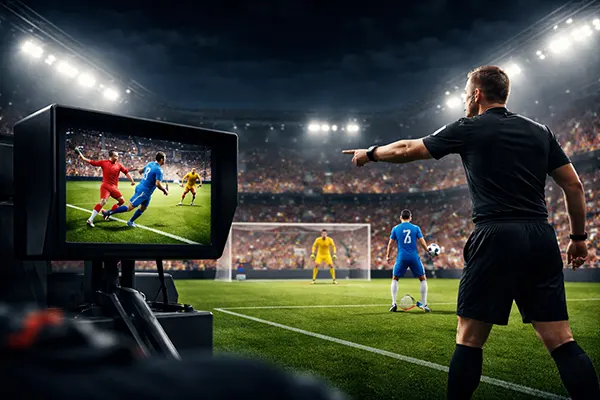Return to the Game After Injury: How a Player’s Form and Physical Condition Influence Sports Betting Odds

In modern sports, the recovery process after an injury is as crucial as the game itself. The moment a key player steps back on the field, the entire balance of a match can change, affecting not only team performance but also betting odds worldwide. Bookmakers closely monitor athletes’ rehabilitation, training intensity, and return timelines to adjust their predictions in real time.
The Impact of Injury Recovery on Betting Markets
When a star player suffers an injury, bookmakers immediately revise the odds. For example, the absence of Erling Haaland in 2024 had a measurable effect on Manchester City’s winning probability in the Premier League. The longer the player stays off the field, the greater the uncertainty among punters and analysts. In 2025, sports analytics rely heavily on data collected from medical staff reports and official training sessions to forecast recovery outcomes.
Modern betting models use machine learning to assess how recovery time affects performance indicators such as sprint speed, endurance, and ball control. Algorithms compare pre-injury statistics with rehabilitation progress to determine the likelihood of a strong comeback. When recovery goes well, the odds gradually stabilise; when complications arise, they shift sharply again.
Injuries to defenders or goalkeepers also have a notable impact. In football, a single absence in defence can alter team stability, leading to higher total-goals predictions. Bettors who follow verified medical updates and match previews gain a more accurate perspective than those relying solely on intuition.
Player Psychology and Market Reactions
The mental state of an athlete returning from injury plays a vital role. Fear of re-injury or pressure from fans can limit a player’s confidence during the first few matches. This psychological aspect influences betting odds, especially in individual sports such as tennis or boxing, where the athlete’s mindset directly determines the result.
In 2025, sports psychologists collaborate with teams to accelerate the mental adaptation process. Clubs such as Real Madrid and Manchester United have invested in comprehensive psychological recovery programmes, recognising that mental readiness equals physical readiness. Bettors often underestimate these factors, although bookmakers now include psychological performance metrics in their predictive models.
Rapid progress in wearable technology also allows experts to measure stress levels and reaction times during training. These insights are used by analytics companies to update expected performance ratings and indirectly influence live odds before matches.
Fitness Tracking and Predictive Data in Modern Sports
Technology has changed how bookmakers and bettors interpret recovery data. Today’s clubs use advanced monitoring tools such as Catapult GPS, Whoop bands, and optical motion capture systems to track every detail of a player’s rehabilitation. These tools help assess whether a returning athlete is truly ready for competitive intensity or still needs controlled adaptation.
In the 2024–2025 season, fitness data became a key factor for betting algorithms. When an athlete shows improved heart-rate variability and stable load management, odds for a team’s success often shorten. Conversely, when data reveals delayed recovery or high fatigue levels, bookmakers react instantly by adjusting lines and handicaps.
Transparency has also increased. Some sports leagues, including the NBA and Premier League, now publish partial fitness statistics. Bettors who interpret this data responsibly can identify valuable opportunities, but only if they distinguish between verified information and speculative rumours spread through social media.
Team Strategy Adjustments After Player Return
When an injured player returns, coaches often modify tactics to accommodate gradual reintegration. For instance, a football manager may adjust formation to reduce workload on the recovering player or substitute them earlier in matches. These changes directly affect total-goals and possession-based markets.
Bookmakers use tactical trend analysis to predict these scenarios. Analysts evaluate past matches where similar players made comebacks, drawing parallels in performance. This helps determine how a team’s tempo or defensive stability may shift. Bettors familiar with these patterns can anticipate how odds will move before the market fully reacts.
As of 2025, artificial intelligence platforms employed by major sportsbooks combine medical records, tactical data, and in-game statistics to refine predictions. This makes modern betting markets more dynamic yet also more dependent on the authenticity of available information.

Economic and Market Effects of Major Player Injuries
High-profile injuries often ripple far beyond the sports arena. In 2025, the temporary absence of athletes like Novak Djokovic or Kylian Mbappé affects not only betting markets but also sponsorship deals, media coverage, and fan engagement levels. A team’s perceived value on the global market may fluctuate based on the expected duration of recovery.
Bookmakers manage this volatility by widening odds and limiting stake sizes when uncertainty is high. This risk management approach ensures market balance but also reduces potential winnings for bettors. Those who understand how bookmakers hedge exposure can make smarter, data-based decisions instead of emotional bets.
Ultimately, the health of star athletes shapes entire seasons. Their physical condition determines not only performance outcomes but also the trust level of betting markets. Staying informed through credible reports, official club statements, and medical evaluations remains the most reliable way to interpret odds movements.
Responsible Betting and Informed Decision-Making
While data analysis has advanced, responsible gambling remains a priority. Bettors should avoid emotional decisions based on personal bias towards favourite players. Understanding the complexity of recovery and team dynamics can reduce impulsive betting behaviour.
Sportsbooks across Europe now provide educational materials about injury analytics and how they affect odds. The goal is to foster informed wagering rather than speculation. Regulatory bodies such as the UK Gambling Commission encourage transparency in statistical interpretation and require clear disclosure when injury updates influence odds.
In 2025, successful bettors combine discipline with knowledge. They respect that recovery is unpredictable and that even advanced metrics cannot account for human resilience. Awareness, patience, and realistic expectations remain the foundation of sustainable sports betting.




